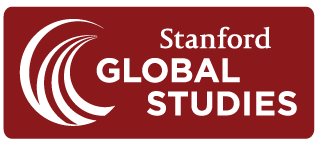How to apply
Collaborative Projects Call for Proposals (September 1, 2016 to August 31, 2017).
Application Deadline: March 15, 2016.
1 - Download the 2016-2017 Application Form (Word).
2 - Download the 2016-2017 Financial Annex (Excel).
3 - Once you have filled out the Application Form and the Financial Annex, UPLOAD the application with all the necessary documents.
4 - You will receive an automatic confirmation that your application has been successfully uploaded.
Application
If possible, applications must be submitted in English. If the project has to be submitted in French, an English summary of the project has to be submitted.
The following documents must be included in order and sent in one single document (PDF or word format):
THE FOLLOWING DOCUMENTS MUST BE INCLUDED IN ORDER AND SENT IN ONE SINGLE DOCUMENT (PDF OR WORD FORMAT):
1 - Completed application form.
2 - Non-technical summary of the project. Your application for funding will be reviewed by the France-Stanford Center’s Executive Committee—a group of Stanford and France-based academics who work across a very broad range of disciplines, including the humanities, social sciences, natural sciences, engineering, and medicine. Given the broadly interdisciplinary background of the committee, it is unlikely that more than one reviewer will have meaningful familiarity with the nature of your research. It is thus vital that you include a non-technical description of the project that will be easily comprehended by all members of the committee. This description, which must be at most 200 words, should (1) clearly identify the project’s significance and (2) avoid disciplinary jargon. Please see the end of this document for an example of a good non-technical summary submitted by past recipients of collaborative research funds (200 words maximum).
3 - A more fully developed description of the nature of the proposed project, its implications for further research, and potential for fostering long-term relationships between researchers from France and Stanford. Applications must clearly state the aims, activities, and anticipated outcomes for the project. If you opt to include a list of references to prior scholarship in the field, please limit this list to the five most important such references (5 pages maximum).
4 - Statement explaining how the proposed collaboration meets the France-Stanford Center's criteria regarding new collaborations, interdisciplinarity and participation by junior researchers (1 page maximum).
5 - Statement (1) confirming compliance with ethical and environmental norms and (2) providing a summary account of how such compliance is to be attained (1 page maximum).
6 - Financial annex.
7 - Biographical resumes of the proposed principal participants (both in France and at Stanford), stating their current affiliations (2 pages maximum).
8 - Letter of intent, signed by both the French and Stanford coordinators indicating their commitment to work together on the proposed project (1 page maximum).
EXAMPLE OF NON-TECHNICAL SUMMARY OF THE PROJECT
Climate Variability and Global Food Security- With an Eye on France
Large variations in seasonal temperature and rainfall threaten crop production, food prices, and food security at local to global scales. This project focuses on the impacts of climate variability on Europe’s agricultural regions, with an emphasis on wheat in France. Although France has a relatively small agricultural area, it has among the highest wheat yields in the world. Climate- induced shocks to crop production thus influence global prices for wheat and other commodities linked to wheat through markets. The project will establish an interdisciplinary collaboration between the Center on Food Security and the Environment (FSE) at Stanford University and the Institut Pierre Simon Laplace (IPSL) in Paris. Our aim is to integrate climate dynamics, agricultural modeling, economics, and policy analysis in an area of climate science that is poorly understood by the economics and policy community—multi-decadal variability. Through a series of visits across institutions and the launch of a new research project, we will bring food security studies to IPSL, and new climate dynamics research to Stanford. Undergraduate and graduate students will be engaged in the research, and they will have an opportunity to visit nearby wheat producing areas in France, thus connecting theory and practice.

